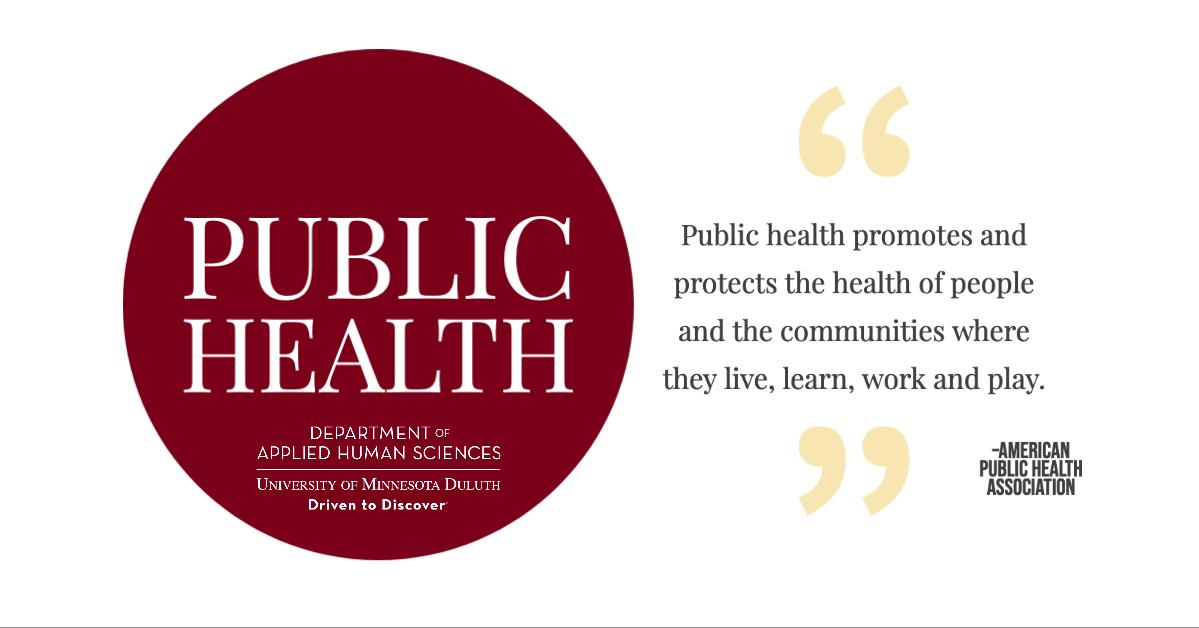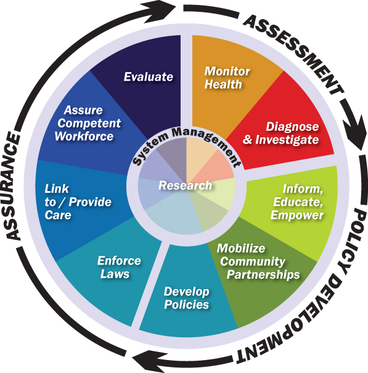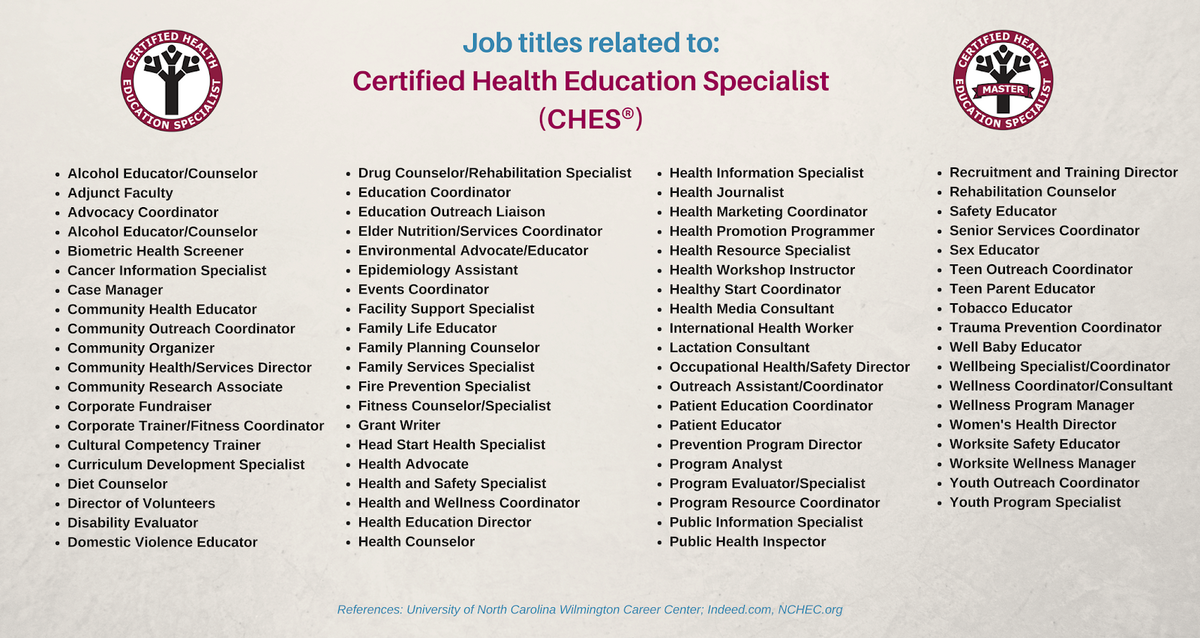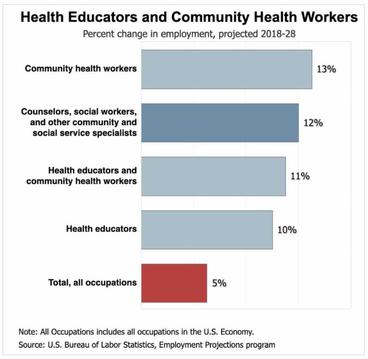
Public Health
The American Public health Association says that “Public health promotes and protects the health of people and the communities where they live, learn, work and play.” There are 5 core disciplines of public health (behavioral science/health education, biostatistics, environmental health, epidemiology, and health services administration).
The UMD Public Health Program emphasizes the behavioral science/health education discipline (with exposure to statistics, environmental health, epidemiology, and healthcare systems) as we prepare students to improve the lives of individuals, groups, and communities through education.
Skills
Public Health majors at UMD are trained in the core Responsibilities, Competencies, and Sub-competencies necessary to perform the daily tasks as a health education specialist.
- Area I: Assessment of Needs and Capacity
- Area II: Planning
- Area III: Implementation
- Area IV: Evaluation and Research
- Area V: Advocacy
- Area VI: Communication
- Area VII: Leadership and Management
- Area VIII: Ethics and Professionalism
Impact
With these skills, our graduates can contribute to the 10 Essential Public Health Services:
- Monitor health status to identify and solve community health problems
- Diagnose and investigate health problems and health hazards in the community
- Inform, educate, and empower people about health issues
- Mobilize community partnerships and action to identify and solve health problems
- Develop policies and plans that support individual and community health efforts
- Enforce laws and regulations that protect health and ensure safety
- Link people to needed personal health services and assure the provision of health care when otherwise unavailable
- Assure competent public and personal health care workforce
- Evaluate effectiveness, accessibility, and quality of personal and population-based health services
- Research for new insights and innovative solutions to health problems

Careers
Health education specialists work with individuals as well as public and private organizations to create, implement, oversee, and analyze programs and strategies that promote health and well-being. Health education specialists can be found in a variety of settings, including schools and universities, government offices, businesses, hospitals, clinics, and more. Read more on the NCHEC site.

Job outlook
According to the Bureau of Labor & Statistics, the projected job growth rate for health educators and community health workers is 11 percent from 2018 to 2028, much faster than the average for all occupations. The great news is that public health professionals have a major future at the local, state, national, and global levels. The UMD Public Health faculty look forward to supporting you on your public health journey.

Certifications
Students who complete the public health major are qualified to sit for the CHES Certified Health Education Specialist exam (www.nchec.org). This certification makes a student more competitive in the hiring process. Testing windows April and October of each year. Eligibility: Alumni of the program will be eligible to sit for the exam, and current students with less than 90 days to graduate may also be eligible.
Time to Make a Difference
Are you ready to promote and protect the health of people and the communities where they live, learn, work and play by performing the core Responsibilities, Competencies, and Sub-competencies of a health education specialist?
- Public Health major: requirements | apply to UMD
- Public Health minor: requirements | apply to UMD
- Contact us: email [email protected] or call 218-726-7120